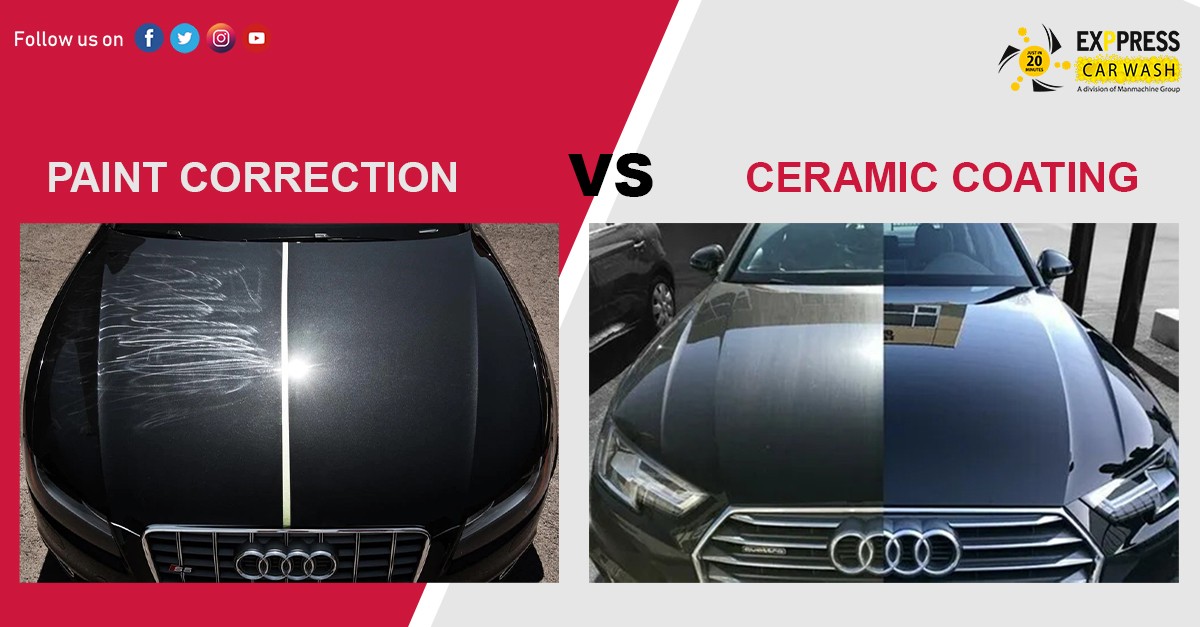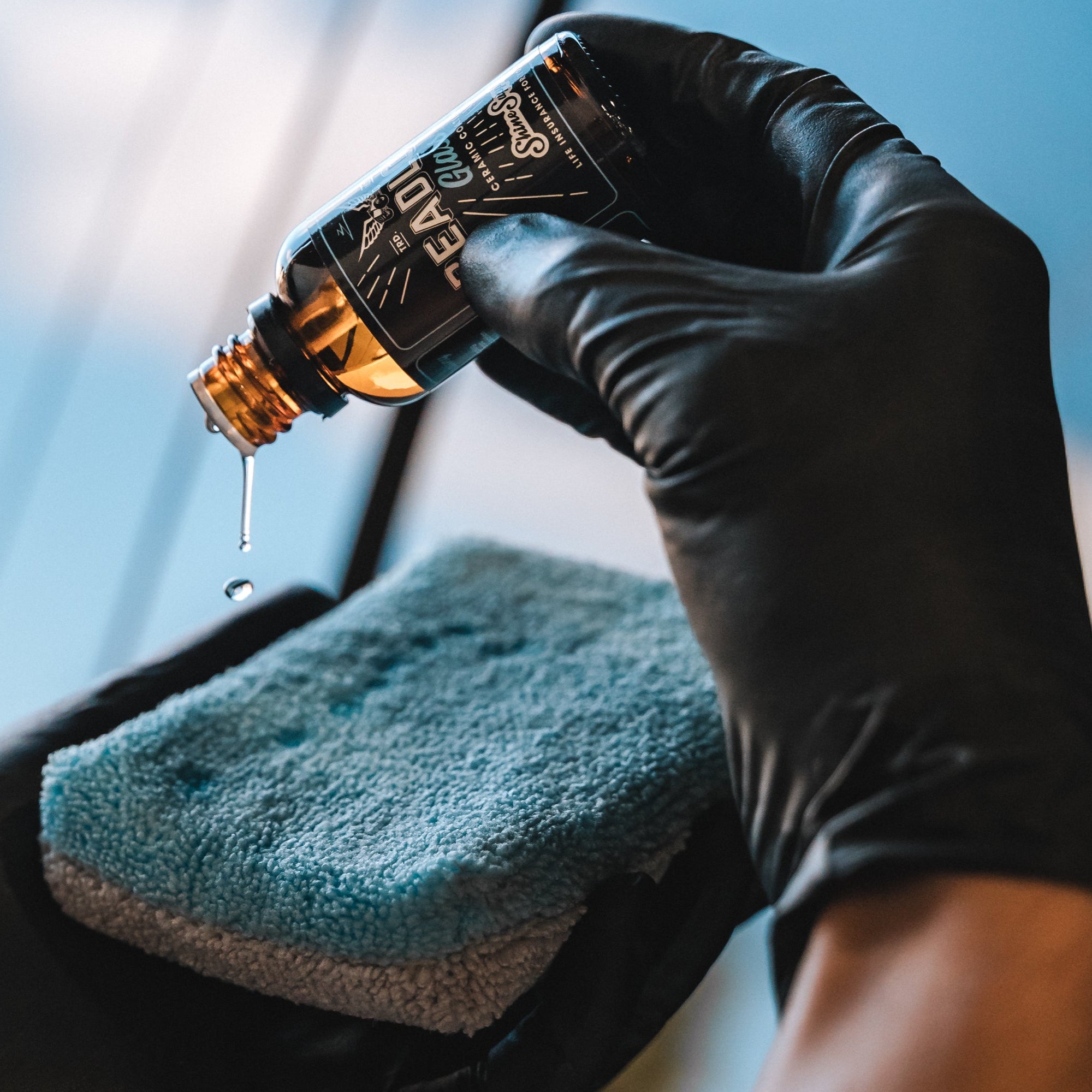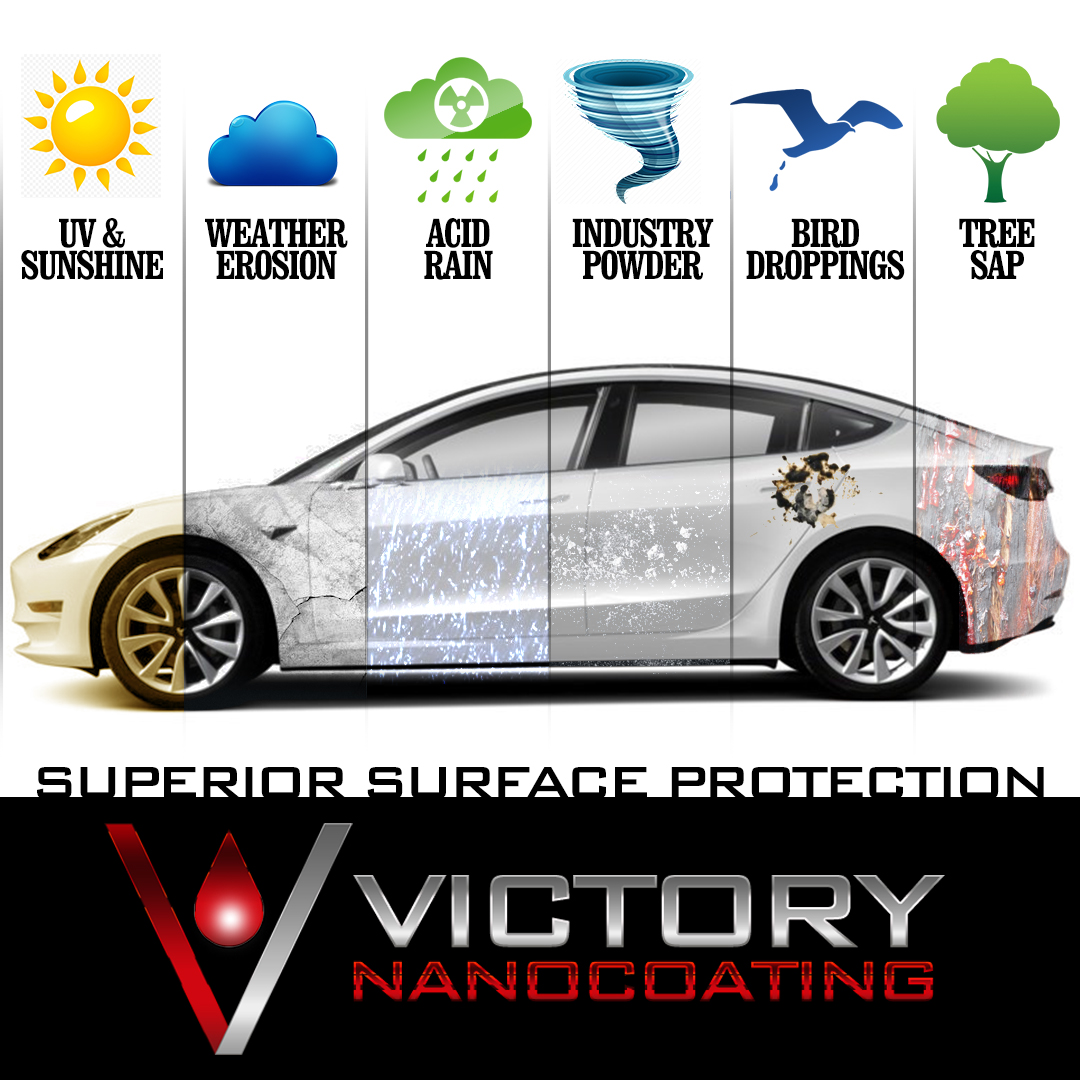Discovering the Scientific Research Behind Ceramic Covering and Its Impact on Cars And Truck Detailing
The application of ceramic finishing in automobile describing stands for a considerable advancement in auto care, rooted in its advanced chemical properties, mainly silica dioxide and titanium dioxide. As we check out the intricacies of the application procedure and the lasting ramifications for automobile maintenance, it becomes clear that the selection of ceramic finish can essentially alter one's strategy to auto care.
What Is Ceramic Finish?
Ceramic coating is a modern-day solution that has gotten appeal in the automobile detailing industry for its ability to provide resilient security for car surfaces. This innovative safety layer is normally composed of silica dioxide (SiO2), which creates a strong bond with the car's paint, creating a long lasting guard against environmental contaminants. Unlike typical wax or sealers, ceramic coverings offer premium resistance to UV rays, chemical stains, and physical abrasions.
The application of ceramic covering involves a careful procedure, where the automobile's surface area is thoroughly cleaned up and decontaminated prior to the finishing is used (Ceramic Coating). Once treated, the finish enhances the lorry's gloss, depth, and clearness, supplying a showroom-quality coating that lasts for many years. One of the crucial benefits of ceramic covering is its hydrophobic properties, which drive away water and dust, making maintenance easier and minimizing the regularity of cleans
The Chemistry of Ceramic Finish
A basic element of ceramic finish depends on its chemical composition, largely defined by the existence of silica dioxide (SiO2) This compound is essential to the development of a sturdy, safety layer that bonds chemically to the automobile's surface. When used, the SiO2 molecules undergo a procedure understood as polymerization, wherein they develop a network of interconnected structures. This results in a durable, hydrophobic surface area that wards off water and impurities.
In enhancement to SiO2, many ceramic coatings include titanium dioxide (TiO2) and various other additives to improve their efficiency characteristics. TiO2, for example, contributes to enhanced firmness and chemical resistance. The interaction between these compounds develops an unique molecular structure that uses a high level of protection versus ecological elements such as UV rays, acid rain, and oxidation.
In addition, the application procedure often involves a meticulous preparation of the surface area to make sure ideal bond of the finish. This chemistry not only makes sure a resilient surface yet likewise enhances the visual appeal of the automobile. Understanding the complex chemistry behind ceramic layers is necessary for detailing professionals that aim to give superior security and durability for their customers' cars.
Benefits of Ceramic Layer
While describing experts often highlight the advantages of ceramic layers, their advantages expand far past aesthetic appeals. Ceramic coatings create a hydrophobic surface area that repels dirt, water, and grime, considerably reducing the regularity of laundries and the initiative needed to preserve a car's appearance.
In addition, ceramic coverings enhance the long life of the car's coating. Unlike typical waxes or sealants, which may last a couple of months, ceramic layers can endure for several years, offering a lasting solution for cars and truck care. This longevity equates to cost financial savings, as proprietors are less most likely to require constant reapplication.
In addition, ceramic finishes are immune to chemical stains and etching, which can occur from acidic materials like bird droppings or tree sap. This resistance not just protects the vehicle's aesthetic appeals yet also decreases prospective damage - Ceramic Coating. In general, the investment in ceramic covering supplies car proprietors a considerable return in terms of protection, simplicity of maintenance, and long-lasting aesthetic allure, making it a progressively popular choice in the world of automotive describing
Application Process Clarified

As soon as the surface is adequately prepared, the ceramic finish can be applied. Using an applicator pad, the professional applies the finish in tiny areas, functioning in a crosshatch pattern to ensure even insurance coverage.
As soon as treated, the ceramic finish forms a solid bond with the paint, giving improved defense and a glossy finish. Proper application is vital to make best use of the durability and effectiveness of the ceramic finishing.

Long-term Influence On Lorry Treatment
The long-lasting impact of ceramic finish on car care is significant, as it essentially alters how owners preserve their cars. By creating a durable, hydrophobic layer on the vehicle's surface, ceramic coverings minimize the adherence of dust, crud, and impurities. This building minimizes the regularity of cleaning required, ultimately preserving water and cleansing products.
In Addition, the UV protection supplied by ceramic finishes assists to avoid oxidation find more information and fading of the lorry's paint, maintaining its visual allure and resale value with time - Ceramic Coating. This protective barrier likewise minimizes the chance of scratches and swirl marks, which prevail issues in traditional paint surfaces
Furthermore, ceramic finishings promote less complicated upkeep, allowing proprietors to cleanse their cars with minimal initiative. The smooth surface area makes it hard for pollutants to bond, making it possible for less complex elimination throughout routine cleaning.
In the future, the financial investment in ceramic finishing may lead to set you back financial savings in vehicle care services and products. Overall, the withstanding advantages of ceramic layers not just enhance the look of automobiles however additionally add to an extra sustainable and effective method to lorry upkeep.
Final Thought
In conclusion, the application of ceramic coating stands for a substantial advancement in auto detailing, driven by its distinct chemical structure of silica dioxide and titanium dioxide. This modern technology not just improves the aesthetic appeal of lorries but likewise offers robust defense against ecological hazards and put on. The lasting benefits, including decreased upkeep regularity and enhanced resilience, emphasize the value of ceramic coatings as an essential financial investment for keeping vehicle appearance and integrity with time.

Comments on “Why Ceramic Coating Is Crucial for Maintaining Your Automobile Looking New”